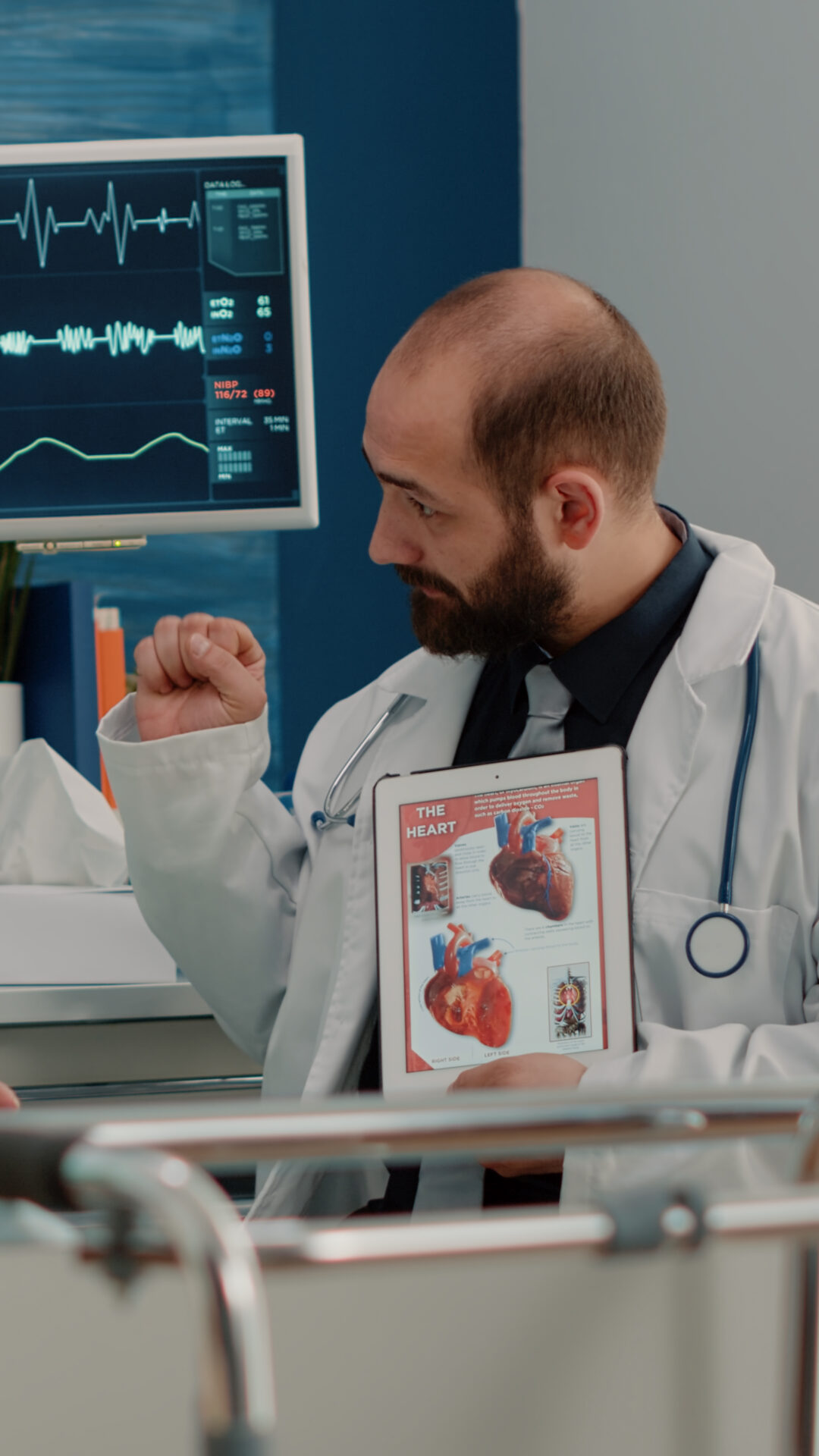Home » About ESMR
ESMR stands for Extracorporeal Shockwave Myocardial Revascularization. ESMR can also be termed Non invasive Cardiac Angiogenesis therapy (Ni-CATh).
ESMR therapy is a new non invasive therapy approach using Extracorporeal Shockwave technology for Myocardial Revascularization (i.e. to improve the blood supply to heart muscles). Ischemic myocardial areas no longer accessible by conventional revascularization therapies like Bypass surgery or Balloon Angioplasty and stent, could be treated with the ESMR therapy to relieve symptoms resulted from the myocardial ischemia.
ESMR was developed by Essen Institute of Cardiology, Essen University, Germany.
Having 70 % -100 % blockages in angiogram
Reblocks after Bypass surgery or Angioplasty
Chronic Renal disease with heart attack problem
The whole treatment duration is 20-30 minutes and the patient should undergo a series of nine treatment sessions during a nine week period.(3 treatments at first week of each month- 1st week , 5th week, 9th week). At each treatment session shockwaves are delivered to the border of the ischemic area.

The treatment is performed using a shock wave generator that is designed to address the unique
Clinical-anatomical requirements of the chest cavity. A cardiac ultrasound imaging system is used to locate the treatment area and to map the exact position and extent of the ischemic zone. Shock waves are then delivered via the anatomical acoustic window to the treatment area under E.C.G. R-wave gating. Several treatment sessions are required to obtain optimal results.
The therapeutic effect of shock waves is attributed to the mechanical pressure and tension that the acoustic wave exerts on the cardiac tissue. Delivery of low intensity Shock waves causes sheer stress on the vessel wall. This stimulates angiogenesis related growth factors-( eNOS,VEGF and PCNA) initiating the angiogenesis process.
ESMR therapy is a new Non Invasive Therapy approach using Extracorporeal Shockwave Technology for Myocardial Revascularization (i.e. to improve the blood supply to heart muscles)
Copyright © 2025 Neomed Hospitals By Digju.com All Rights Reserved.
Powered by Digju.com